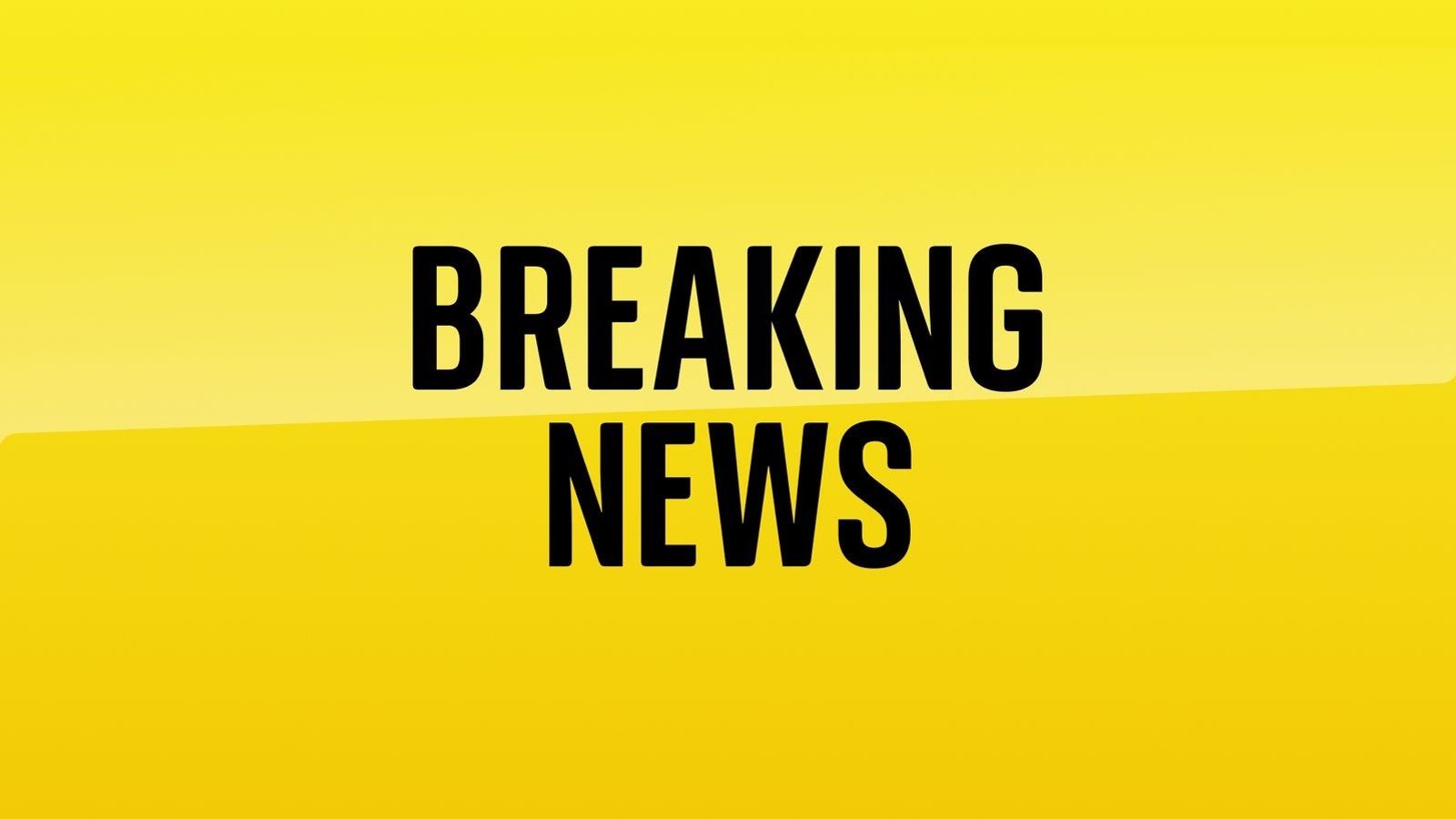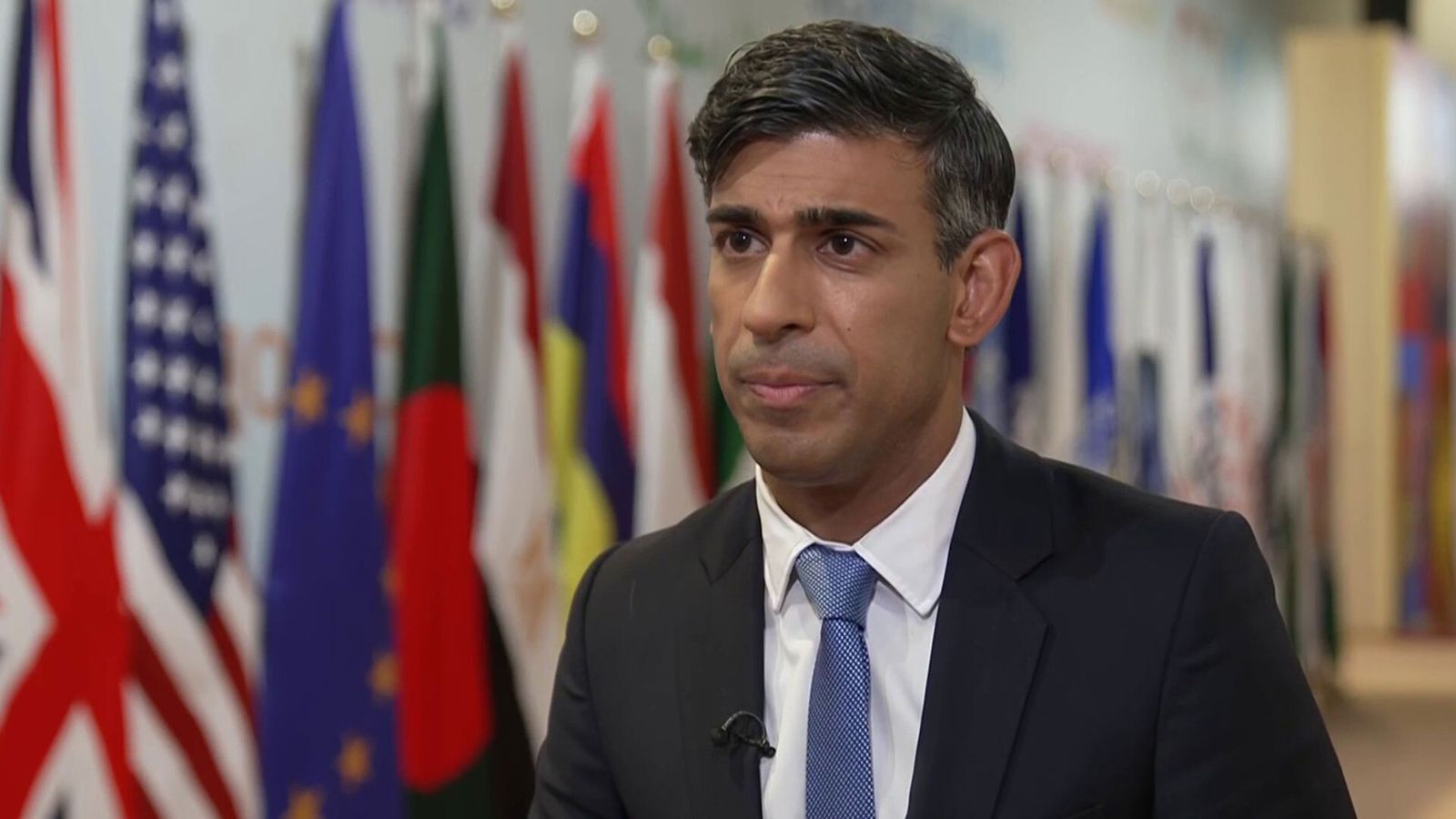Grant Shapps has said the UK is “not inadvertently doing something which escalates this war in a way that would be unacceptable to the entire world” as he seemingly confirmed a deal with Poland to supply fighter jets to Ukraine is off.
The transport secretary told Sky News that all NATO partners “work together” on the situation in Ukraine, adding: “It is important that we are a defensive organisation which means we won’t be getting directly involved in the war.”
Live updates as Polish fighter jet plan rejected
He said a reported deal to loan fighter jets is “not something which is going to develop”, but that the UK “are providing huge amounts of support”.
Speaking to Sky News yesterday, Defence Secretary Ben Wallace said he would support a decision by the fellow NATO member to supply MiG-29 jets to Ukraine – but that it would have to be their choice.
Mr Wallace is due to update MPs today on the support being offered by the UK to the Ukrainian forces.
Key developments:
• US bans Russian oil imports and UK will phase them out by end of year
• US says Poland’s offer of MIG-29 fighter jets to be passed to Ukraine ‘not tenable’
• Criminal offence for any Russian plane to enter UK airspace, says transport secretary
• First Lady Olena Zelenska writes open letter condemning Putin and ‘mass murder of civilians’
• Woman charged in New York with being a Russian agent for more than a decade
Ukraine war: Russia promises another temporary ceasefire to allow Ukrainian civilians to escape besieged cities
Woman who ran ‘I love Russia’ campaign in US charged with acting as unregistered Russian agent
Ukraine war: The talking, tears and TikTok therapy of the conflict’s broken children
Some 760 visas granted to fleeing Ukrainian refugees
Mr Shapps also confirmed to Sky News that some 760 visas have now been granted to fleeing Ukrainian refugees enabling them to come to the UK, with 22,000 applications “on their way through”.
The transport secretary defended the UK’s record on providing an escape route for Ukrainians and insisted that the country’s president Volodymyr Zelenskyy did not want his countrymen travelling too far from their homeland.
“No country has given more humanitarian aid to Ukraine than the UK, in the world. We have given £400m, in addition the British people have been incredibly generous as well,” he told Sky News.
“Geographically we are, of course, spaced further to the West and President Zelenskyy and the Ukrainian government have told me that they do not want people to move far away, if at all possible, from the country because they want people to be able to come back.
“We are really leaning into this, at the same time respecting Ukraine’s wishes, the government’s wishes, not to pull people a long way away from Ukraine.”
Shapps defends visa security checks
Mr Shapps also defended the UK’s insistence on visa controls for Ukrainians.
“I think you would expect us to be wanting to check people’s status before they come in,” he told Sky News,
“We know that Russia are involved in all manner of operations so it’s absolutely right to check that somebody is coming from Ukraine and know who is coming to this country, essentially, and that’s what we are doing.”
The transport secretary said the decision not to have a visa application centre in Calais was to avoid Ukrainians becoming targets for criminal people-smuggling gangs operating around the Channel port.
“I do know that in Lille there is a centre being set up. I do also know that because of the nature of the situation in Calais – the long-term issues there of criminal gangs bringing people across – we are very keen to separate these two issues,” he said.
UK place airspace ban on Russian aircraft
His comments came as the government made it a criminal offence for any Russian aircraft to enter UK airspace.
On Tuesday Transport Secretary Grant Shapps sent a letter to all UK airports and airfields letting them know that air traffic control now has the power to tell pilots of any Russian aircraft – private or commercial – not to enter UK airspace, or to leave it by a certain route.
Airport operators can detain a Russian aircraft, or one chartered by a Russian, under the new law.
The new powers will also allow the government to remove aircraft belonging to designated Russian individuals and entities from the UK aircraft register.
Since 25 February, Russian scheduled airlines – including national carrier Aeroflot – have been banned from UK airspace but new legislation brought on Tuesday means it will be a criminal offence for any Russian aircraft to breach that.
This is in line with “other sectors within the sanctions regime” that have been applied since Russia invaded Ukraine a fortnight ago, Mr Shapps said.
Foreign Secretary Liz Truss also announced a ban on the export of aviation and space-related goods and technology and on UK companies providing insurance and re-insurance services in relation to these.
UK and US enact moves to sanction Russian oil
Ms Truss will meet with officials in Washington today to discuss further support for Ukraine after both the UK and US were thanked by Ukrainian President Volodymyr Zelensky for their moves to sanction Russian oil.
Mr Shapps acknowledged that the ban on Russian oil imports could have a knock-on impact on consumers.
“We need to stem the flow of Putin’s gas and oil blood money from funding his war machine,” he said.
“I think that the British people – even though it will, of course, lead to some higher energy prices, although we’ve probably already seen that as they’re happening already – the British people are not prepared to see us funding Putin’s horrific war.”
Ukrainian president addresses UK MPs
Yesterday, Mr Zelenskyy vowed to “fight to the end” against Russia as he appealed for more help from the UK in a historic address to the House of Commons.
Echoing Winston Churchill’s “we shall fight on the beaches” speech to the same chamber in 1940, the Ukrainian president said: “We will fight until the end, at sea, in the air. We will continue fighting for our land, whatever the cost.
“We will fight in the forests, in the fields, on the shores, in the streets.”
It is the first time a foreign leader has directly addressed MPs in the Commons.








